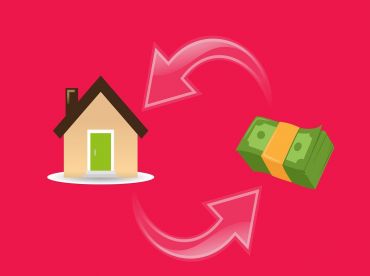The fundamentals of the 21st century aren’t any different from previous ones. Having a well-paying job, a decent medical cover and a house that you own is what would probably be described as a successful life even today. As the human race goes to another level of advancement, things have become a little more complicated and understanding the tax benefits of home loan are crucial for reducing your tax burden. There are certain benefits of home loan that can help you reduce your taxable income in a number of ways.
Section 80C: The Principal Amount
The Government of India has structured the bricks in a systematic manner and the repayment of the actual borrowed amount or the principal comes under the umbrella of Section 80C of IT (Income Tax) Act. The current deduction is raised to Rs 1,50,000 from the previous amount of Rs1,00,000 since budget 2014.
The Section 80C also approves the payment of registration fee and stamp duty to be claimed as a deduction from taxable income.
However, tax benefits of Home Loan under Section 80C are considered as a legitimate exercise only once the construction is complete and the certificate for the same has been awarded to you.
There is another clause that talks about the transfer of the residential property on which the individual has claimed tax deduction under Section 80C. If you transfer the property before the end of five years from the financial year (FY) you had taken its possession no tax benefits on the same shall be awarded and the amount claimed as the deduction in the previous years will become taxable in the year when the property is transferred.
Section 24: The interest story
The maximum deduction limit to be claimed from the interest paid on a home loan has been raised to Rs 2,00,000 from the previous Rs 1,50,000 allowed under Section 24 of a self-occupied property. There is also a possibility that the property is not self-occupied and the individual is staying at another place due to his employment or business, then, a fixed amount of Rs 2,00,000 shall be considered for education.
In case the property is not self-occupied but rented, the rent received will be considered as income and the interest paid will be claimed under deduction. If the individual’s paid interest is more than the rent then it can be set off as loss from house property and can be a deduction from the taxable income.
The deduction must be claimed on a yearly basis when the interest had accrued and that’s the main difference between Section 24 and 80C (where the deduction is claimed when the principal amount is paid)
Treatment of Pre-Construction Interest
The new trend is all about EMIs and the mayhem begins even before the construction is complete. So if you have taken a home loan for a property that is under construction then the following rules apply:
| Purpose of Loan | Results |
| Reconstruction or Repair or Renewal | No Tax Deduction is allowed for interest paid in EMIs before completion of the property
|
| Purchase or construction | The interest amount that has been paid before the completion of construction would be treated as the tax deduction in 5 equal installments for the next 5 Financial Years
|
Section 80EE: The first time home buyers
In Budget 2016, Section 80EE was reintroduced to give additional Rs 50,000 benefit to first time home buyers over and above the Rs 1,50,000 limit under Section 80C and Rs 2,00,000 under Section 24.
Deduction under Section 80EE can be claimed only if the value of the property is less than Rs 50 lakh and home loan taken on it is less than Rs 35 lakh.
Secondly, the home loan must have been sanctioned after 1st April 2016.
Note– Get Home Loan In Delhi at best interest rate at MakeMyMoney
How to claim tax benefits?
You need to furnish the Interest Certificate from the bank and a Loan Account Statement that clearly mentions the amount paid towards Principal, Interests, and Prepayment of Principal (if any).
To Sum Up
The above-mentioned points are brief about the tax benefits of a home loan. A lot of people are saving their taxes by spending wisely.
Source: News18
Subscribe our monthly newsletter to know more about offers and new tips we share on how to manage your finance.















